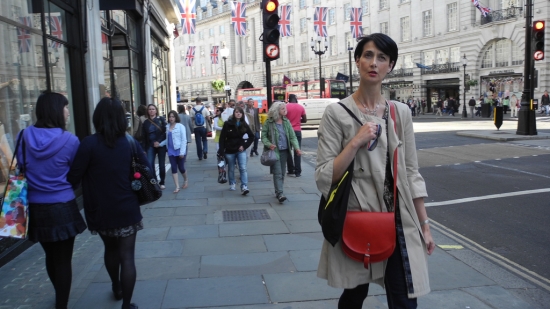Back in October, luxury handbag manufacturer Mulberry revealed that its annual profits may not meet those forecast by industry experts due to falling wholesale revenues and a slowing of growth in its international market. Now, it has emerged that the cost of improving the quality of its products has caused something of a squeeze on its overall profits in the period to September.
Furthermore, wholesale sales dropped by 4 per cent in the same period when compared to the first six months of 2011, while retail growth has also taken a minor plunge. Overall, this has meant that the half year profit totals only £10 million – a drop of 36 per cent from last year.
Bruno Guillon, chief executive of the British fashion brand which has stores throughout the UK and globally, explains that looking to the long term future of the company has had some financial repercussions in the short term, especially due to the tough economic conditions luxury brands are trading in at present.
He says; “The UK retail business and key wholesale accounts have continued to perform well in the context of a challenging economic environment.
“During the period, we have rationalised certain wholesale accounts and refocused the outlet business, which has impacted financial performance in the short term.
“However, we firmly believe that this is in the long term interests of transforming Mulberry into a global luxury brand.”
Yet it has not all been bad news for the fashion brand as, while like for like sales averaged only a 7 per cent growth throughout the six month period, there have been signs of the market picking up once more in the first two months of the current quarter. During October and November, the retail growth rate managed to climb again, reaching 11 per cent by the end of the month.

Retail growth improved during October and November
This could be due to consumers beginning to spend once more as confidence returns following a slight upturn in the economy, yet it could also be a temporary boost caused by seasonal spending in the run up to Christmas.
While the 7 per cent growth in sales seems paltry in comparison to the first six months of 2011 – where an increase of 26 per cent in like for like sales was recorded – much of this can be attributed to the fall in demand from the Asian market. Mr Guillon claims that “a more challenging external environment in Asia, resulting in cautious ordering by franchise partners” has taken the greatest toll on the wholesale aspect of the business, rather than a dramatic drop in sales in the UK.
Mulberry announced that it expects its full year figures to be largely in line with the most recent forecasts, as the company believes sales will pick up once more in the New Year. Consumers must hope that these predictions turn out to be true, as with administrations having been highly common during the recession, the loss of such a powerful British brand from the high street would surely signal further economic problems for Britain stretching out into 2013.
Do you think high fashion labels are finally feeling the effects of a global recession after performing remarkably well for the first three years, or is this simply a temporary dip in consumer demand? Should companies which sell expensive goods consider alternate methods, such as creating a lower cost line, until the global economy picks up again?
Previous Post
European Commercial Property Loans Remain Unpaid